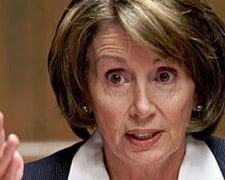
A Government Accountability Office report says that it is the FCC’s responsibility to make sure the sponsors of all ads on broadcast outlets are identified, and says that includes political advertising. Key House Democrats are calling for the FCC to act on it.
GAO spelled it right out, noting that no special mention need be made if the source of the ad is obvious, like when Pittsburgh Steeler Mean Joe Green drank that kid’s Coke. It wasn’t an ad for the Steelers, or an ad about kids for sale, it was a Coke ad.
Here’s how GAO spelled it out: “A written or verbal sponsorship announcement must be made at least once during any sponsored commercial content except when the sponsor is obvious. For content considered political or that discusses a controversial issue, broadcasters must follow all requirements for commercial content and additional requirements, such as identifying officials associated with the entity paying for an advertisement.”
GAO went further, writing, “In addition, the Federal Election Commission (FEC) enforces federal election law that requires all political communications for a federal election, including television and radio advertisements, to include a disclaimer statement. FEC also oversees requirements to report campaign funding and expenditures, including funding for political advertising.”
It noted that the FCC provides guidance for broadcasters on this issue, but said that the guidance may becoming outdated due to technological advances; and further noted that the enforcement process is utterly and entirely murky. In fact, broadcasters who may be the subject of an investigation have no idea of its status; and the FCC says it does not supply information because it is not legally obligated to do so.
GAO told the FCC it needs to update its guidance and improve communication with broadcasters.
Speaker of the House Nancy Pelosi (D-CA), Commerce and Energy Committee Ranking Member Henry Waxman (D-CA) and Communications Subcommittee Ranking Member Anna Eshoo (D-CA) emphasized the disclosure aspect of the GAO report.
“It’s been said that sunlight is the best disinfectant – and this report makes clear that the FCC has the power, the authority, and the responsibility to shine a bright light on the organizations and campaigns behind our political advertisements,” Leader Pelosi said. “The FCC must simply update its rules to reflect the law, ensuring disclosure in our elections, transparency in our campaigns, and fairness for all voters.”
“The American people deserve to know when and by whom they are being persuaded – and it is the FCC’s job to ensure that they do,” Congressman Waxman said. “I urge the FCC to take full advantage of the authority already granted by Congress to provide maximum transparency for consumers and voters.”
“The 2012 election cycle made it abundantly clear that our electoral system and campaign finance laws are badly in need of reform,” Congresswoman Eshoo added. “Where power once originated from the general electorate, that balance has shifted in favor of the enormously wealthy, who can now hide their identity and their political expenditures. It’s time for the FCC to play a crucial role in bringing greater transparency to America’s electoral system by requiring sponsors of political ads to disclose their true identity, not just their ambiguously-named Super PAC. I welcome the GAO’s findings supporting this assertion.”
RBR-TVBR observation: The moving parts on the campaign finance issue are amazing. Congress passes a law on campaign finance reform – Congress enacts laws, the courts shoot them down, and regulatory agencies come barreling in from a third direction.
Somehow, we can’t see the FCC getting very far down the road to demanding that the billionaires known to have been big participants in the 2012 elections, or anyone else for that matter, are forced to stand by their ads in the same way the actual candidates are without getting Congress and the courts heavily involved again.
Without taking sides, here’s the one thing we know to be true about campaign finance reform: Since the passage of McCain-Feingold, the only thing that has happened is the exponential growth of campaign spending. One way or the other, money finds its way into our electoral process, and we’re beginning if there is any way at all to effectively put a lid on it under our current system.





